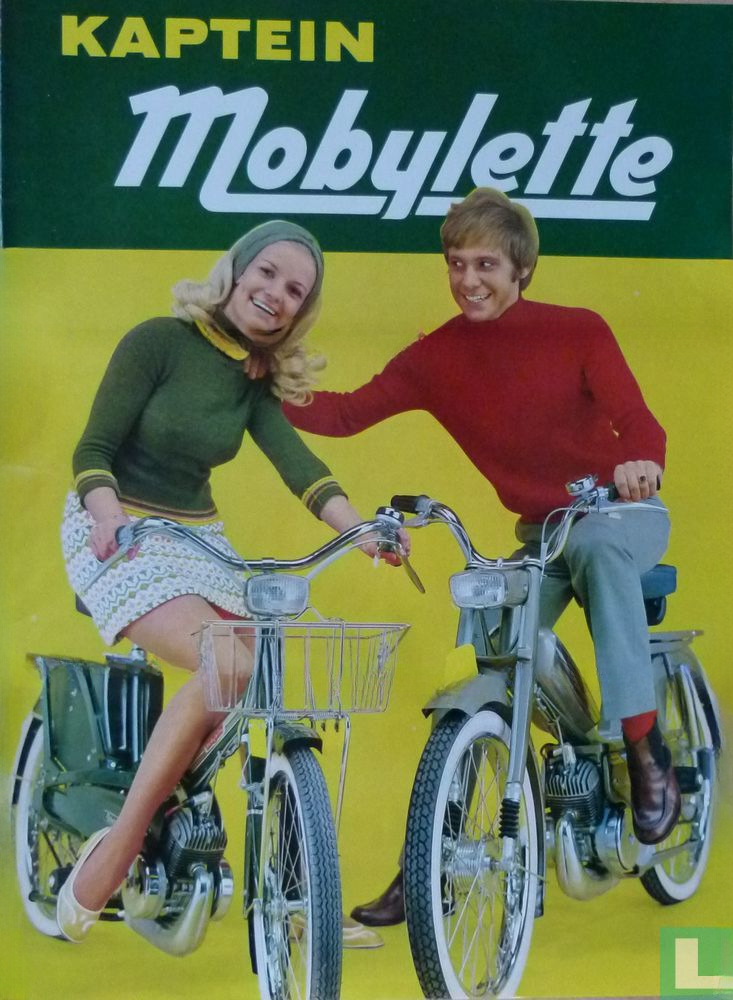The Rise and Demise of Kaptein Motorcycles: A Dutch Icon's Journey
The article explores the rise and demise of Kaptein Motorcycles, a Dutch company that began as a bicycle repair shop in 1922 and eventually ventured into importing and manufacturing motorcycles. Facing challenges post-war, Kaptein collaborated with Motobécane to produce motorcycles but later shifted focus to mopeds, particularly the Mobylette. A strategic merger with Union in 1965 led to the formation of Rijwiel- en Motorindustrie Unikap N.V., showcasing the company's adaptability and evolution in the dynamic motorcycle industry.
KAPTEINVINTAGE MOPEDSNETHERLANDS1940'S
3/24/20243 min read


The Rise and Demise of Kaptein Motorcycles: A Dutch Icon's Journey
Introduction
Kaptein Motorcycles, a name once heralded as a beacon of Dutch ingenuity in the two-wheeled world, began its journey in 1922. Founded by Willem Kaptein as a humble bicycle repair shop, it wasn't long before the company, nestled in the heart of Arnhem, expanded its sights beyond simple repairs. By 1925, Kaptein had begun importing motorcycles from esteemed brands such as Ariel, Calthorpe, and Norton, marking its foray into the motorcycle industry. This transition from a local repair shop to a pivotal player in the world of motorcycles is a testament to the ambition and vision of Willem Kaptein, setting the stage for an illustrious, albeit tumultuous, journey through the history of Dutch motorcycling.
The Founding of Kaptein
The establishment of Kaptein Motorcycles traces its roots back to the early 20th century when Willem Kaptein opened a bicycle repair shop in 1922. However, the ambition of Willem Kaptein transcended mere repairs, leading to the importation of motorcycles by 1925. This strategic move marked Kaptein's initial foray into the motorcycle industry, dealing in brands such as Ariel, Calthorpe, Imperia, Puch, Norton, Husqvarna, and TWN, among others. The entrepreneurial spirit of Kaptein, coupled with a keen sense for opportunity, laid the foundational stone of what would become a significant chapter in the history of Dutch motorcycling, heralding a new era for the company.
Post-War Expansion and Association with Motobécane
The post-war period was a pivotal time for Kaptein, resulting in a significant shift in the company's business model. Facing steep import tariffs, Willem Kaptein decided it was more economical to manufacture motorcycles rather than import them. This led to a collaboration with French manufacturer Motobécane in 1938. Kaptein obtained a license to produce motorcycles closely based on Motobécane's models Z2c and D45A in a factory located in a ruined power station in Arnhem. Despite the ambitious plan to manufacture 12,000 units per year, competition and technical difficulties limited production to about 800 motorcycles by 1951, culminating in the cessation of motorcycle manufacturing. Kaptein, however, continued to import completed Motobécane machines. The partnership with Motobécane was not only a significant chapter in Kaptein's history but also a testament to the post-war resilience of the company, navigating through challenges to maintain its presence in the industry.
The Signature Moves: Kaptein Motorcycles and Mobylette
The transition from motorcycle production to mopeds marked a significant evolution in Kaptein's business model. After ceasing motorcycle manufacturing in 1951 due to several challenges, Kaptein's focus shifted towards mopeds, specifically the Mobylette, which resulted from collaboration with Motobécane. This move was fueled by the post-war market's shift towards more affordable, efficient modes of transportation. Kaptein is credited with developing the immensely successful Mobylette in a new factory and marketing it under the Kaptein brand until 1965. From then until circa 1973, all mopeds were imported from France and rebadged as Kaptein products. This period underscores Kaptein's adaptability and innovation, transitioning from motorcycles to mopeds and leaving an indelible mark on the two-wheeled vehicle market with the Mobylette.
Unikap: A Strategic Merger and Its Aftermath
The story of Kaptein motorcycles didn't culminate with the cessation of their production but rather evolved through strategic partnerships. In 1965, a significant development occurred when Kaptein merged with Union, a renowned bicycle and moped manufacturer, to form Rijwiel- en Motorindustrie Unikap N.V. This alliance marked a new chapter for Kaptein, leveraging Union's strengths to enhance their product offerings. However, the collaboration was short-lived, and by 1973, the partnership was dissolved. Kaptein's journey through this merger into dissolution reflected the changing dynamics of the motorcycle and moped industry during that time, showcasing the challenges and opportunities inherent in strategic collaborations within the sector.
